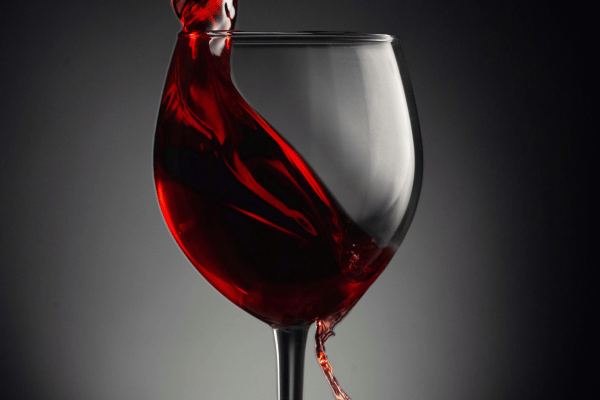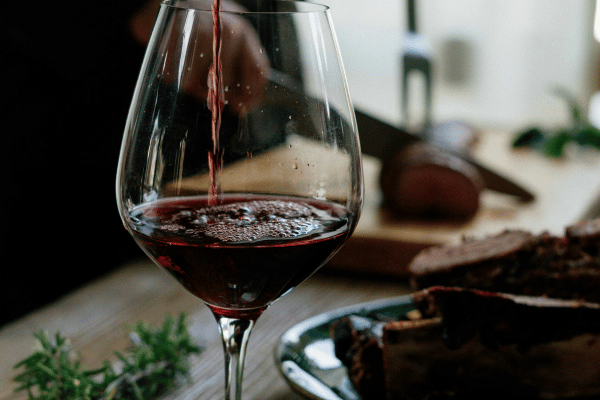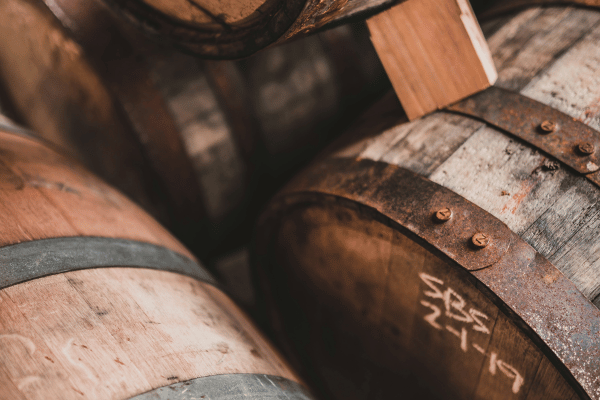Wondering how to talk about wine? There are tons of ways you can talk about wine, and once you learn how to talk about wine, you’ll be able to communicate what you like about different wines.

Let’s uncork wine terminology!
Sometimes, going on a wine tour can appear like it’s in another language. Here’s a quick brief of what all these words mean, and how you can impress your fellow wine tourers with some perfect wine terminology!
Varieties of wine
There are so many different variables which affect the taste and texture of wine – it really just depends on the conditions in which it has been made, and the growing conditions of the grapes! Because wine can bring out so many different tastes, there are many different ways to talk about it.
If you’re going on a wine tour for the first time, you might hear about different wine terminology that you’ve never heard of before.
It can be a bit overwhelming.
Listening to wine talk can be confusing if you’ve never heard of the different wines.
Beginner’s guide to talking about wine:
Here are some of the different wine terms, and what they mean.
ABV
The ABV is the alcohol content in the wine. If the tannins are stronger, then the ABV can be stronger too…
Acidity and sweetness
The outcome of a wine’s taste will depend on the balance between its acidity and sweetness.
Body
Some wines will have a watery texture, and some will have a juice-like texture.
The watery ones tend to be a bit lighter and easy-going, whereas heavier-bodied wines are sippers, and so you might only need a slight amount to contribute to the body of the wine.
Tannins
Wine tannins are all about how your mouth feels after you’ve sipped the wine. Tannins are molecules within the wine that give it spice. The longer the wine sits in its stems, the more tannic it will be. That’s because it has a higher content of acidity in the grape skins.
Tannins are all about how long the wine was left in its skins/leaves. So the more that it has, the higher the tannins will be. Red wines normally have more tannins than white wines. The higher the tannins, the more you’d have to consider the taste while you’re drinking it.
Tasting notes
There are so many different tasting notes when it comes to wines! There are heaps of different flavour profiles that exist.
Aroma
Aroma is all about how the wine smells. A wine might smell spicy, floral, fruity, citrusy, berry, or fruity. To sense this, simply put your nose to the wine glass and swirl the wine around, and think about the different things you can smell.
Floral
Floral tasting notes are usually present in wines. For whites, you’d get tasting notes like elderflower, chamomile and blossom – whereas red wines tend to give off more violety tannins.
Fruity
The taste and aroma of the wine range from citrus to dried fruit. If a wine is a bit younger, then it might taste a bit fresher. If you’re drinking an older wine, you might get more of a dried fruit taste.
Finish
Finish is all about how long the wine sticks around on your palate. If the wine fades, then it is known as having a shorter finish. If it lingers a bit, then it’ll have a long finish.
Oaky
If a wine has been oak-aged, then you’ll get a nice smoky, oak taste to it. Lots of wines are kept in oak barrels, and this will affect the overall taste of the wine.
That means you’ll get a smoked taste to it, as the residue of the oak barrel will affect the flavour it.
Off-dry
Most German wines tend to be off-dry, which means there’s more sugar leftover.
Wine is all about enjoyment
But ultimately, enjoying wine isn’t all about knowing the jargon, or learning the wine dictionary…it’s all about experiencing flavours you enjoy and learning what wines you like. Wine is all about what you enjoy. There are heaps of different types of wines out there – just waiting to be tried!
Speaking of wine (tours)…
Sommeliers will likely talk to you about the terminology of wine and give you a rundown of all the key concepts when it comes to wine during your tasting, anyway. But it’s always good to get clued up on the wine jargon! Because sometimes, having the basic knowledge of wine jargon is important, so that you can tell restaurant servers or wine merchants what wines you like/don’t like. Want to tour the world of wine and figure out what tastes you enjoy? Jump on a wine tour in the Barossa Valley!



